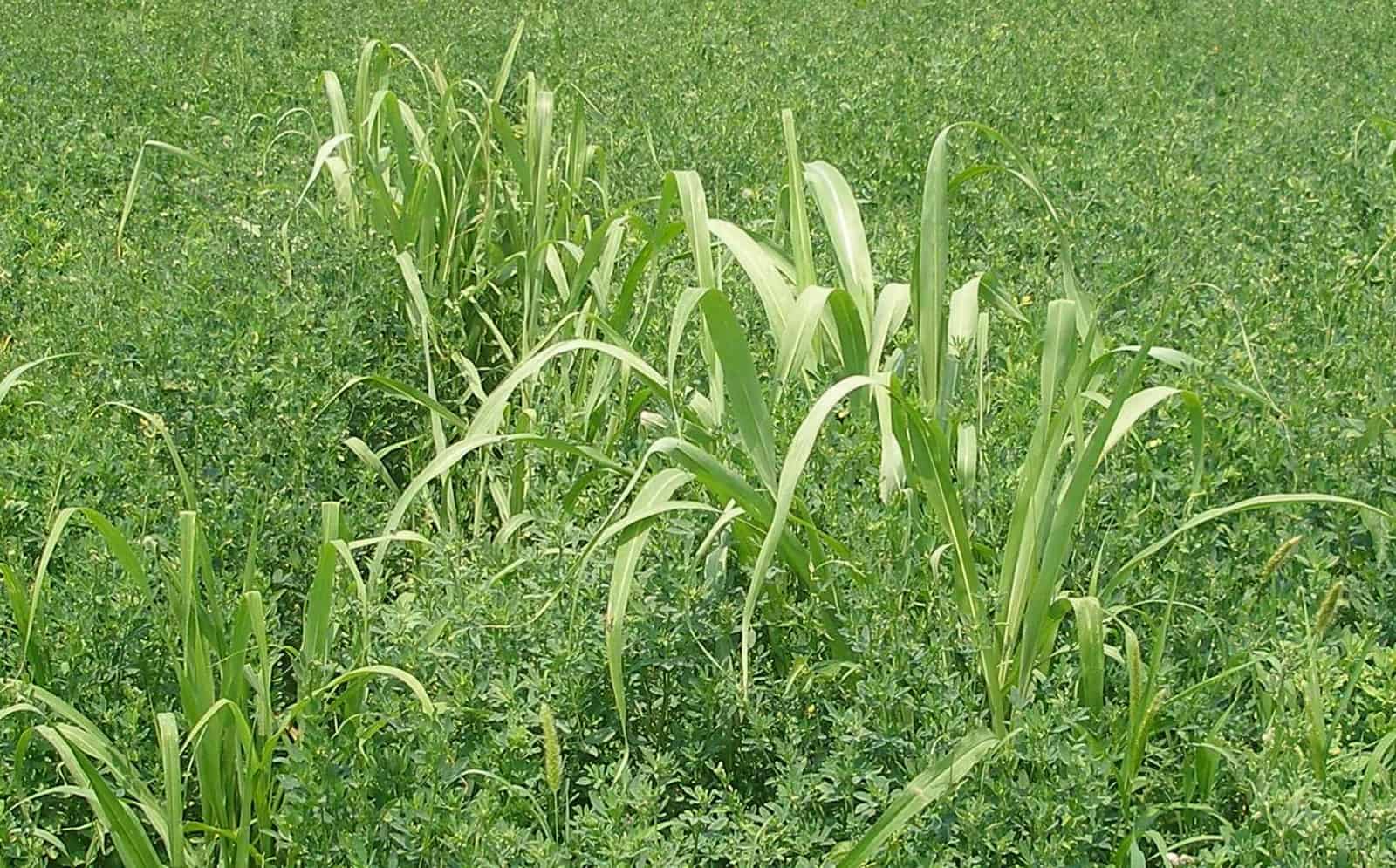Toxin Topic: Johnsongrass Poisoning in Horses

All sorghums, including Johnsongrass, are associated with four major disease syndromes:
- Neuropathy (nerve damage) and teratogenesis (damaging effects to the fetus);
- Photosensitization;
- Nitrate intoxication; and
- Acute cyanide poisoning.
For cattle, nitrate and cyanide poisoning are the major concerns associated with Johnsongrass. However, for horses, neuropathy and teratogenesis are the most important risks; rarely, if ever, do photosensitization, nitrate, or acute cyanide poisoning occur due to Johnsongrass ingestion in horses.
In horses, clinical signs of toxicity can occur after a few weeks to months of continuously grazing Johnsongrass or other sorghums at any growth stage. Hay containing sorghums has also been incriminated. Horses gradually develop ataxia (incoordination), difficulty backing, and dribbling urine, progressing to flaccid paralysis of the tail and hind legs. Mares repeatedly open and close the vulva as if in heat and have continuous urine dribbling and hind leg scalding. Abortions and fetal malformations such as arthrogryposis (fused joints) can occur during any stage of pregnancy. And males exhibit an extended and relaxed penis and urinary incontinence in addition to ataxia
Create a free account with TheHorse.com to view this content.
TheHorse.com is home to thousands of free articles about horse health care. In order to access some of our exclusive free content, you must be signed into TheHorse.com.
Start your free account today!
Already have an account?
and continue reading.
Written by:
University of Kentucky College of Agriculture, Food and Environment
Related Articles
Stay on top of the most recent Horse Health news with















